
Six of our long-time faculty members are retiring from the Department of Psychiatry & Behavioral Sciences this year. These faculty members have advanced our field in a number of notable ways and their clinical work, research and engagement with our education programs have impacted many people. We are incredibly thankful for their service at Duke and wish them all the very best in their next chapter!
Below are just a few highlights from their careers.
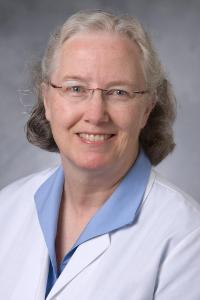
Caroline Haynes, MD, PhD
Associate Professor of Psychiatry and Behavioral Sciences
Associate Dean for Medical Education
Director of the Office of Student Affairs
Retiring June 30 after 30 years of service
Dr. Caroline Haynes came to Duke in 1975 to complete the Duke Medical Scientist Training Program, then completed her psychiatry residency and an affective disorders fellowship at Duke. She joined the faculty in 1992 and specialized in the treatment of complex mood and anxiety disorders. After directing the Psychiatry Clerkship for many years, she was appointed an Associate Dean for Medical Education, then Director of the Office of Student Affairs in 2000, a role she has served in for 22 years.
Dr. Haynes has received numerous awards for her teaching and professionalism, including Golden Apple awards from medical students, the Honored Professor Award in the Department of Psychiatry & Behavioral Sciences, Thomas Kinney and Nancy Roeske teaching awards, and Distinguished Faculty and Excellence in Professionalism Awards from the School of Medicine.
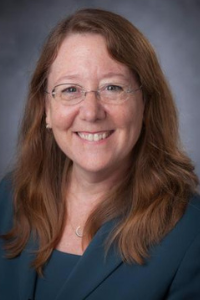
Susan Hazlett, PhD
Assistant Professor of Psychiatry and Behavioral Sciences
Director of the Family Studies Program
Retiring June 30 after 28 years of service
Dr. Susan Hazlett came to Duke in 1994 as a new faculty member in the Family Studies program under the directorship of Dr. Karen Wells. She became Director of Clinical Training and Associate Director of the program in the early 2000’s and then Director upon Dr. Wells’ retirement in 2016. She also taught the Essentials of Psychotherapy course in the residency program for many of those years. She has taught, supervised, or mentored more than 550 residents, child psychology interns and child fellows.
Dr. Hazlett’s career has been dedicated to the teaching and clinical missions in Duke Psychiatry & Behavioral Sciences. As part of a strongly integrative and lively learning community, she has brought a focus on attachment-oriented clinical work, emotion-focused therapy, and deeply integrative models to the work of helping families, couples, and individuals. She has been privileged to work with excellent colleagues who are integrative thinkers and wise clinicians, co-creating a unique and highly valued training program.
Dr. Hazlett’s professional life has been dedicated to the growth and at times transformative learning of the many creative, thoughtful students she has worked with over the years. She is profoundly grateful for the opportunity to work with so many deeply-caring, brilliant young professionals who go on, bit by bit, to change the world.
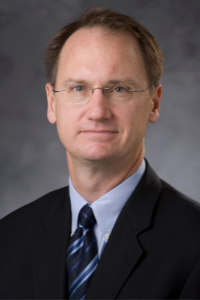
Richard Keefe, PhD
Professor of Psychiatry and Behavioral Sciences
Professor of Psychology and Neuroscience
Retiring June 30 after 27 years of service
Dr. Richard Keefe began his Duke career in 1995 as an assistant professor. His research is primarily devoted to understanding cognitive dysfunction and its treatment in patients with psychiatric and neurological conditions. He has held leadership roles for cognitive methods in several large National Institute of Mental Health studies and more than 100 industry trials.
Dr. Keefe has published more than 300 scientific papers and two books and was listed on the Web of Science’s “Highly Cited Researchers” list from 2014 to 2019. He’s on the editorial boards of Psychological Medicine and Schizophrenia Research and the Scientific Board of the Brain and Behavioral Research Foundation. He was the 2012-2014 President of the International Society for CNS Clinical Trials and Methodology. Dr. Keefe is also the co-founder and former CEO of VeraSci.
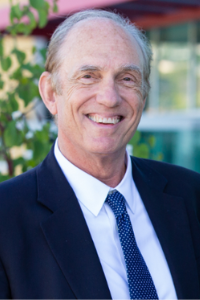
Jed Rose, PhD
Professor of Psychiatry and Behavioral Sciences
Director of the Duke Center for Smoking Cessation Research
Retiring June 30 after 33 years of service
Dr. Jed Rose, who came to Duke in 1999 as an associate medical research professor, is one of the leading authorities on the treatment of tobacco addiction. He serves as Director of the Duke Center for Smoking Cessation Research and is President and CEO of Rose Research Center, LLC.
In the early 1980’s, Dr. Rose led the initial studies of transdermal nicotine administration, which helped pave the way for the development of commercial nicotine skin patches; he also conducted pioneering studies into the role of sensorimotor aspects of cigarette smoking.
A major focus of Dr. Rose’s research program is the application of less harmful nicotine substitution strategies, including e-cigarettes, to tobacco harm reduction and smoking cessation. In addition to conducting treatment-based research, his research team applies brain imaging methodologies to identify brain substrates underlying craving and addiction. Genomic and other individual predictors of quit smoking success are also being identified, and are being applied to the design of personalized therapeutic approaches. Dr. Rose has authored more than 220 publications and is listed as an inventor on more than ten patents.
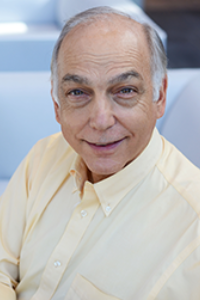
Joseph Talley, PhD, ABPP
Professor of Psychiatry and Behavioral Sciences
Retiring June 30 after 45 years of service
Dr. Joseph Talley began his Duke career in 1977 as a staff psychologist at Counseling and Psychological Services (CAPS), where he later served as Associate Director. For 15 of those years, he taught psychiatry residents and provided individual psychotherapy supervision of many psychiatry residents on rotation at CAPS. He has authored or co-authored four books, edited or co-edited four other published books, and contributed 39 other publications or presentations at professional meetings. His research focused on the efficacy of brief and very brief psychotherapy.
Dr. Talley, who is double-board certified by the American Board of Professional Psychology, has held numerous leadership roles in professional organizations, including President of the American Academy of Counseling Psychology and Chair and CEO of the Council of Presidents of Psychology Specialty Academies.
Dr. Talley has earned numerous awards and honors for distinguished service, including receiving the Distinguished Service Award from the American Academy of Counseling Psychology and being elected a Distinguished Practitioner by the National Academies of Practice. Dr. Talley has provided individual counseling to more than 6,000 people at CAPS.
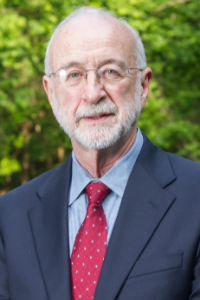
Redford Williams, MD
Professor of Psychiatry and Behavioral Sciences
Professor of Psychology and Neuroscience
Professor of Medicine
Director Emeritus, Behavioral Medicine Research Center
Retiring June 30 after 50 years of services
Dr. Redford Williams joined the Duke School of Medicine faculty in 1972. His department leadership roles have included Director of the Behavioral Medicine Research Center from 1985 to 2019 and Chief of the Division of Behavioral Medicine from 1990 to 2013.
Dr. Williams’ research has focused on the role of psychosocial stress in the development and course of medical disorders, and the role of genetic variants in moderating the impact that psychosocial stress. He has co-authored 11 books, more than 250 refereed journal articles, 36 book chapters and 71 presentations at national meetings. He also co-developed a cognitive behavioral stress management training program, Williams LifeSkills.
In addition to his research and leadership roles, Dr. Williams has mentored numerous trainees in the field of behavioral medicine, including two who became presidents of the Society of Behavioral Medicine. He has also served as president of several societies, including the Society of Behavioral Medicine, the American Psychosomatic Society and the Academy of Behavioral Medicine Research, and has received lifetime achievement awards from several national and international societies that focus on behavioral medicine.
These brief summaries barely scratch the surface of these seven faculty members’ accomplishments and the positive ways they’ve impacted our community here at Duke, as well as across Durham, the state, the U.S. and the world. We are extremely proud of and deeply grateful for their contributions.